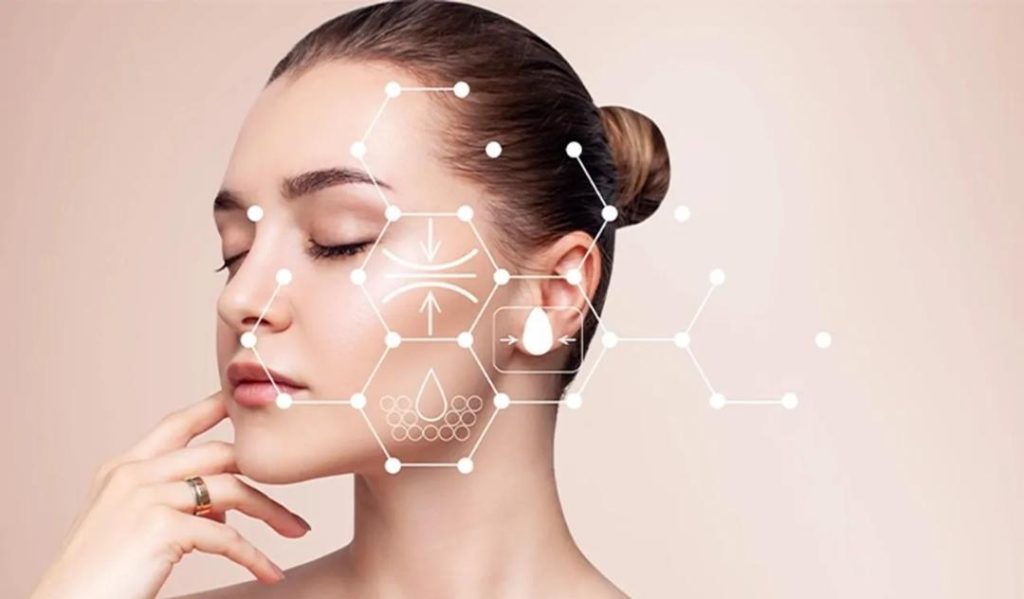
How AI & Innovation are Redefining the Beauty and Wellness Landscape
The skincare industry has undergone a significant transformation in recent years, shifting from basic routines to a realm of personalized solutions, inclusivity, and cutting-edge innovation. As we look ahead to 2025, skincare trends reflect a deeper understanding of diverse skin needs, a commitment to wellness, and a harmony between science and nature.
One of the key factors driving this transformation is the increasing use of artificial intelligence (AI) in the beauty and wellness industry. AI-powered skincare platforms are using machine learning algorithms to analyze individual skin types, providing personalized product recommendations and customized skincare routines. This level of personalization has been a game-changer for consumers, who are no longer forced to rely on trial and error to find products that work for their skin.
Another trend that is gaining traction is the focus on inclusivity. The beauty industry has traditionally been criticized for a lack of diversity, with many products and marketing campaigns catering to a narrow definition of beauty. However, in recent years, there has been a shift towards inclusivity, with brands launching products and campaigns that celebrate diversity and individuality.
For example, beauty giant L’Oréal has launched a range of products specifically designed for darker skin tones, including a foundation range that features 24 shades. Similarly, skincare brand Neutrogena has launched a range of products that cater to a range of skin types, including oily, dry, and combination skin.
The increasing focus on wellness is also having a significant impact on the beauty and skincare industry. Consumers are no longer just looking for products that make them look good, but also those that make them feel good. This has led to a growing demand for skincare products that are natural, organic, and sustainable.
The rise of clean beauty has been driven in part by consumer concerns about the ingredients used in skincare products. Many consumers are now seeking out products that are free from harsh chemicals, artificial fragrances, and dyes. This has led to a surge in the popularity of natural and organic skincare brands, which are using ingredients like essential oils, herbs, and botanicals to create products that are both effective and gentle.
The fusion of science and nature is another trend that is gaining traction in the beauty and skincare industry. Many consumers are now seeking out products that combine the best of both worlds, with ingredients like retinol, vitamin C, and hyaluronic acid working in harmony with natural ingredients like aloe vera, green tea, and chamomile.
One of the key ways that this fusion is being achieved is through the use of nanotechnology. Nanotechnology involves the use of tiny particles to deliver ingredients deep into the skin, where they can have a profound impact on the skin’s appearance and health. This technology is being used in a range of skincare products, from serums and moisturizers to masks and cleansers.
The beauty and skincare industry is also seeing a growing trend towards customisation. Consumers are no longer satisfied with one-size-fits-all products, and are instead seeking out products that are tailored to their individual skin type, concerns, and needs.
This has led to the rise of bespoke skincare, which involves working with a skincare professional to create a customized skincare routine that is tailored to the individual’s specific skin needs. This approach is not only effective, but also personalized, and many consumers are willing to pay a premium for this level of customization.
Another trend that is gaining traction is the focus on skin health. The beauty industry has traditionally been focused on surface-level beauty, with consumers seeking out products that make them look good, but not necessarily feel good. However, in recent years, there has been a shift towards a more holistic approach to beauty, with consumers seeking out products that promote overall skin health and well-being.
This has led to a growing demand for skincare products that are rich in antioxidants, which help to protect the skin from environmental stressors and promote overall skin health. It has also led to a greater focus on skincare routines that involve self-care and mindfulness, with consumers seeking out products and practices that promote relaxation, stress relief, and overall well-being.
In conclusion, the beauty and skincare industry is undergoing a significant transformation, driven in part by the increasing use of AI, a focus on inclusivity, and a fusion of science and nature. Consumers are no longer satisfied with basic skincare routines, and are instead seeking out personalized, customized, and effective products that promote overall skin health and well-being.
As we look ahead to 2025, it is likely that these trends will continue to shape the beauty and skincare industry, with consumers seeking out products that are tailored to their individual skin needs, promote overall skin health, and combine the best of science and nature.
Source:
https://www.shethepeople.tv/author-spotlight/guest-contributions/skincare-trends-for-2025-8728129






